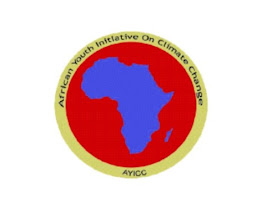Doha Briefs: Of Apples, Mangoes and Gateway
Finally, COP18
has come to an end; but then, the reactions on the outcome, dubbed Doha Climate Gateway, have been mixed. But
then, let us sort through the apples and mangoes by looking into the nitty
gritties of the Doha Climate Gateway.
Hot Air
The issue of
renewing the commitment period for the Kyoto Protocol has been one of the main
interests in the build up to COP18. The issue of surplus carbon emission permits, commonly referred to as ‘hot air’, was bound to determine the outcome
of talks geared towards getting a second commitment period (CP2). It is
important to note that the Kyoto Protocol’s first commitment period will run
out at the end of this year. Australia, EU, Japan, Lichtenstein, Monaco and
Switzerland agreed to drop their ‘hot air’ and enter CP2 on a clean slate.
The Kyoto
Protocol Mechanisms (Clean Development Mechanism (CDM), Joint Implementation(JI) and the International Emissions Trading (IET)) will be available during
CP2, but only for parties who have committed.
However, there
are those who are convinced that CP2 pledges are quite weak, and will not be
sufficient to realize the goal of lowering Green House Gas emissions.
Increasing
Ambition
If there is a phrase
that has been pounded into the ears of negotiators at COP18, then it most
definitely is ‘increase ambition’. There have been concerns that Parties have
not demonstrated sufficient ambition commensurate with the challenge presented
by climate change. However, they made a few bold steps by agreeing on a timetable
for a universal climate change agreement that would cover all the Parties by
2020; it is to be adopted in 2015.
Still, some of
the major emitters of Green House Gases such as Japan and New Zealand have
refused to commit to CP2, raising serious concerns as to whether they are
really committed to ct down on their emissions.
New kids on the
block
The Green Climate Fund (GCF) and the Climate Technology Centre and Network (CTC) are the
new kids on the block with regards to UNFCCC infrastructure aimed at addressing
finance and technology issues. Korea was chosen as the host of GCF; a UNEP-led
consortium will host the CTC.
However, it is
important to note that lack of commitment by developed countries to fund the
GCF is a dark cloud hanging over its successful operationalization, and this
issue has yet to be solved.
All about the
money
Money matters
have been at the center stage in COP18, and this had to do with fast-start finance. There
was a tussle between developed and developing countries, with the latter
accusing the former of misleading reports on new fast-start finance funds.
Developing countries were pushing for the establishment of a transparent accounting
mechanism that would make a clear distinction between new and old funds under
fast-start finance, as well as determining whether the funds are loans or
grants. At the end of COP18, governments agreed to start a work programme for
2013. Also, Germany, UK, France, Denmark, Sweden and the EU Commission
committed US$6 billion until 2015.
Loss and Damage
Hurricane Sandy
was the centrepiece in the discussions on loss and damage, whose principle is:
developed countries should pay developing countries that suffer from disasters
related to climate change. There was drama on the last week of negotiations
when the US threatened to veto the final draft text that would have laid the
foundation for an international mechanism to deal with loss and damage due to
climate change. The US opined that the costs related to loss and damage would
be exponential; they were advised by other voices of reason to focus more on
moderating the mechanism, rather than sounding its death knell.
Capacity
Building
This was one of
the key issues during the negotiations, and a new work programme was agreed
upon in order to build capacity through climate change education as well as enhancing
public participation in climate change decision-making.
Conclusion
Well, a number
of things were achieved, but there are persistent concerns that ambition to
tackle climate change should be renewed and increased. All in all, it is upon
each and every one of us to contribute and give our best towards addressing
climate change, which is undoubtedly the defining challenge of the 21st
century.
Note: You can check out the official press release by UNFCCC for a
detailed outcome of COP18.
Compiled by: Kennedy Liti Mbeva
Compiled by: Kennedy Liti Mbeva

Comments
Post a Comment